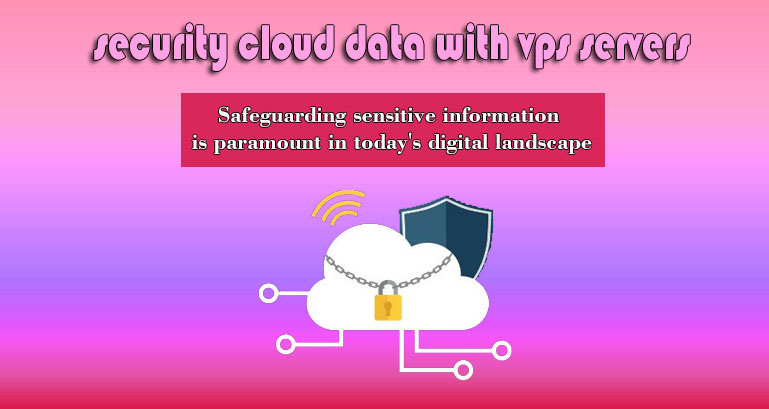Fortifying the Digital Vault: Securing Cloud Data with VPS Servers
Safeguarding sensitive information is paramount in today’s digital landscape. As businesses increasingly migrate to the cloud, robust cloud data security is needed. While cloud providers offer baseline security measures, an additional layer of protection can be achieved through the strategic implementation of Virtual Private Servers (VPS).
This comprehensive guide explores cloud data vulnerabilities, analyzes how VPS strengthens cloud security and equips you with essential practices to fortify your digital assets in the cloud.

Unveiling the Chinks in the Cloud Armor: Potential Threats to Cloud Data
Migrating to the cloud unlocks a plethora of benefits, but it also introduces inherent security risks. Let’s delve into some common threats to cloud data:
- Data Breaches: Unauthorized access to cloud storage systems can lead to breaches, compromising sensitive information like customer records, financial data, or intellectual property.
- Insider Threats: Malicious insiders with authorized access can pose a significant threat, intentionally leaking or manipulating data for personal gain.
- Misconfigurations: Accidental misconfigurations in cloud security settings can leave data vulnerable to unauthorized access or exploitation.
- Denial-of-Service (DoS) Attacks: These attacks can overwhelm cloud resources, causing disruptions and preventing legitimate users from accessing data.
- Shared Responsibility Model: Understanding the shared responsibility model in cloud security is crucial. Cloud providers are responsible for securing the underlying infrastructure, while businesses are responsible for ensuring their data and applications within the cloud environment.
Introducing the VPS Bastion: How Virtual Private Servers Enhance Cloud Security
VPS servers act as virtualized environments within a physical server, offering a dedicated space for your cloud data. Let’s explore how they bolster cloud security:
- Enhanced Isolation: VPS separates your data from other users on the shared physical server. This isolation reduces the risk of exposure to security breaches or malware infestations impacting other users.
- Improved Access Control: VPS allows you to implement stricter access control measures, restricting access to your cloud data to authorized personnel only. This minimizes the potential for unauthorized access or insider threats.
- Customization and Flexibility: VPS affords greater control over your cloud environment. You can configure security settings, install firewalls, and deploy intrusion detection systems tailored to your specific security needs. This level of customization surpasses what’s typically offered by shared cloud hosting solutions.
- Scalability and Disaster Recovery: VPS offers on-demand scalability, allowing you to allocate resources efficiently based on your security needs. This can be beneficial for implementing robust security solutions requiring additional processing power or storage. Additionally, VPS can be leveraged as part of a disaster recovery strategy, providing a readily deployable backup environment in case of a cloud outage.
However, it’s vital to recognize that VPS alone isn’t a silver bullet for cloud security. Here are additional security practices to fortify your cloud data:
- Encryption: Implement data encryption at rest and in transit, rendering it unreadable even if intercepted by attackers.
- Strong Passwords and Multi-Factor Authentication (MFA): Enforce strong password policies and implement MFA to add an extra layer of authentication and prevent unauthorized access.
- Regular Security Audits: Conduct security audits of your VPS environment to identify and address potential vulnerabilities.
- Stay Updated: To minimize vulnerabilities, ensure your VPS software and applications are updated with the latest security patches.
- Data Backups: Maintain regular backups of your cloud data to a secure offsite location, ensuring you have a copy in case of data breaches or accidental deletion.
Choosing the Right VPS Hosting Provider for Secure Cloud Data Storage
The security practices of your VPS hosting provider are paramount. Here’s what to consider when selecting a provider:
- Security Certifications: Choose a provider with industry-recognized security certifications, such as SOC 2 or ISO 27001. These certifications demonstrate the provider’s commitment to robust security practices.
- Data Center Security: Inquire about the physical security measures employed by the data center housing your VPS. This should include access controls, video surveillance, and environmental safeguards.
- Network Security: Ensure the provider offers robust network security features, such as firewalls and intrusion detection systems, to protect your data from unauthorized access.
- Backup and Disaster Recovery Solutions: Evaluate the provider’s backup and disaster recovery solutions. Look for providers offering automated backups and readily deployable disaster recovery options.